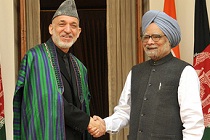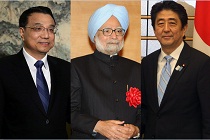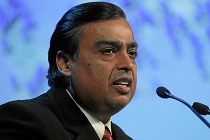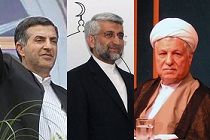India’s Liberal Agenda
This report examines whether traditional liberalism stands a chance in today’s India, where the individual’s role has been nearly subsumed by a dominant state seeking to be benefactor.
 Courtesy: Madhu Amodia
Courtesy: Madhu Amodia
This report examines whether traditional liberalism stands a chance in today’s India, where the individual’s role has been nearly subsumed by a dominant state seeking to be benefactor.
 Courtesy: bigbirdz/Flickr
Courtesy: bigbirdz/Flickr
We cannot have the ‘cowboy capitalism’ that almost brought down the world financial system in 2008, or the abdication of accountability by government institutions. Instead, both the private sector and the government must equally do their parts to create an equitable India to sustain economic growth for generations
 Courtesy: oxfamnovib/Flickr
Courtesy: oxfamnovib/Flickr
Elections are meant to be a suitable recourse in democracies if citizens feel that the government does not represent them. However, the recent protests in Brazil, Turkey and India show that people feel political classes are too far removed from their every day realities to address their grievances
 Courtesy: Semilla Luz/ Flickr
Courtesy: Semilla Luz/ Flickr
The protests in Brazil, Turkey, Egypt and India are bound by a common thread of grievances against misuse of government power and corruption. These modern protests show a marked decline in government trust, even though may not always have clear objectives
 Courtesy: MEAphotogallery/ Flickr
Courtesy: MEAphotogallery/ Flickr
In 2012, Iraq emerged as India’s second largest crude oil supplier thereby shifting focus back on bilateral relations. However, India’s historical and cultural connection with Iraq, as well as common geopolitical concerns, reveal that relations have the potential to go beyond oil
 Courtesy: Ministry of External Affairs, India
Courtesy: Ministry of External Affairs, India
Kabul Diary is a compilation of experiences and observations by Gateway House’s Rajeshwari Krishnamurthy, who is visiting Afghanistan. In her second entry, she writes about the omnipresence of the ‘India’ factor and the goodwill that New Delhi has in Kabul.
 Courtesy: Ministry of External Affairs, India
Courtesy: Ministry of External Affairs, India
While the recent India-Japan Joint Statement contains significant breakthroughs, the China-Pakistan Joint Statement reveals the absence of warmth between India and China. With the current flurry of bilateral exchanges, India is fine-tuning its approach to emerging regional realities, as are others.
 Courtesy: World Economic Forum/Flickr
Courtesy: World Economic Forum/Flickr
The recent protestation over Mukesh Ambani receiving CISF protection has thrown light on why current laws make it preferable for private individuals and organisations to seek government guarding agencies for protection over private security firms
 Courtesy: WikimediaCommons
Courtesy: WikimediaCommons
The 11th Presidential election of Iran will be held on June 14, 2013. Why will this election be a test for the Islamic Republic’s stability? What are the factors at play that make this election critical; and more importantly, why must India monitor it closely?
 Courtesy: PML-N
Courtesy: PML-N
The high level of enthusiasm expressed by New Delhi – for former Prime Minister Nawaz Sharif’s expected return to power – may perhaps be premature. India be patient with the new government in Islamabad.